More like this...
Deactivators Commodore 64 game
Deactivators is a puzzle video game released in 1986, designed by David Bishop and Chris Palmer, developed by Tigress Marketing and System Software, and published by Ariolasoft's action game imprint Reaktor. In the game, players take control of bomb disposal robots known as "deactivators" and must use them to defuse bombs placed by terrorists in five research complexes. The game's concept originated from a brainstorming session between Bishop and Palmer, with its design and development taking five to six months to complete. It was released for the Amstrad CPC 464, Commodore 64, and ZX Spectrum platforms in October 1986.
Deactivators received positive reviews from video game critics due to its originality and graphics. Your Sinclair even ranked it as one of the best games for the ZX Spectrum. Despite the favorable reviews, the game didn't achieve commercial success, leading to Tigress Marketing's closure shortly after its release.
Gameplay
Deactivators is an action puzzle video game where players control bomb disposal robots tasked with removing bombs from five scientific research complexes planted by terrorists. Each building serves as a level that must be completed to progress to the next. A time limit, based on the bomb's fuses, is set, with a burning fuse displayed when a player picks up a bomb. To dispose of the bombs, players must have the deactivators throw them from adjacent rooms until they can be thrown out of the exit. Security droids reprogrammed by the terrorists act as obstacles that can destroy the deactivators. If a bomb explodes in a room, everything inside it is destroyed, making it impossible to complete the level. Players can obtain new deactivators after completing a building.
Four commands can be used in the game: selecting deactivator droids to control, moving the droids, commanding the droids to throw, and scanning the rooms in the building. Each room features different gravity operating from various directions, with some rooms having the robots move on the side of the rooms or the ceiling. Circuit boards appear in different rooms and must be inserted into a computer in the computer room. The computers are used to activate functions such as opening doors and windows, deactivating force fields that block robots from going to adjacent rooms, and turning on teleporters to warp to different rooms. The game also includes a level editor, allowing players to create custom rooms.
Development
Deactivators was designed by David Bishop and Chris Palmer. Bishop was the co-founder of Tigress Marketing, the game's developer, while Palmer joined Tigress after leaving Argus Specialist Publications. The game's concept was born from a brainstorming session between Bishop and Palmer. The game's design process involved hand-drawn sketches on paper to work out the tasks in each building, as well as the timing and routes required to complete them. The design phase took a month to complete, and development took four to five months. System Software handled the programming, and it was published by Ariolasoft under its Reaktor imprint, created to focus on arcade and action games. The original audio, titled 'Robot Tango,' was composed by Simon PC Frost. Deactivators was the first game to be released under this imprint. It was officially released on October 6, 1986, for the Amstrad CPC 464, Commodore 64, and ZX Spectrum.
Shortly after Deactivators's release, Tigress Marketing closed down following Ariolasoft's departure from software publishing. David Bishop continued designing games and went on to work for Virgin Interactive, Mindscape, and PopCap Games. Palmer, on the other hand, left the video game industry to work in information technology.
Reception
Deactivators received generally positive reviews from video game critics. The ZX Spectrum version was ranked 28th in Your Sinclair's "Official Top 100 Games of All Time." A reviewer for Computer and Video Games predicted it was destined to become a cult game. Andrew Wilton from Amstrad Action praised its gameplay, describing it as "excellent" and highlighting the room perspective changes as the most interesting feature in the game. Critics also praised the game for its originality.
Graphics received mostly positive reactions for each console. Crash and Your Sinclair wrote positively about the Spectrum's graphics. The Crash reviewer praised the details and animations of the droids, as well as the design of the rooms, while Gwyn from Your Sinclair described the graphics as "clean." Andrew Wilton was disappointed that the game did not make the most of Amstrad's color limitations. The Commodore 64 graphics were also well received by Zzap!64, which called the game's monochromatic appearance "unusual but effective." The Computer and Video Games reviewer praised the Commodore 64 version for its sound, favoring it over the Amstrad and Spectrum versions.
Despite the positive critical reception, the game did not achieve commercial success. In an interview with Retro Gamer, Chris Palmer noted a disconnect between the game's marketing and its actual content as a contributing factor to its lack of commercial success.
Game category: Commodore 64 games
Deactivators is a captivating arcade-puzzle maze game that places you in charge of a squad of bomb disposal droids. Your mission is to swiftly grab and toss them out of the building to ensure their safety. However, be cautious, as failure to act promptly will result in the loss of a droid and potentially block off essential rooms, hindering your progress. The game's levels boast grid-like structures with doors, trapdoors, and poles, progressively increasing in size and complexity. To navigate through these challenging levels successfully, meticulous mapping is crucial.
Prepare yourself for formidable security droids patrolling the premises, but fear not, as you can deceive them by leading them to fall through cleverly placed holes. The central hub of your operations is the computer room, enabling you to utilize teleports and disable force fields with hidden circuit boards found throughout the levels. Brace yourself for later levels where gravity fluctuates and rooms distort your sense of direction, demanding precise execution. Will you rise to the occasion, utilizing strategic thinking and agility to triumph in Deactivators' ever-intensifying puzzles?
Recently played
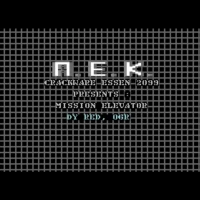
![imagesystemdocs[htl] Commodore 64 game](https://www.gamesclips.com/gameImages/5786.webp)
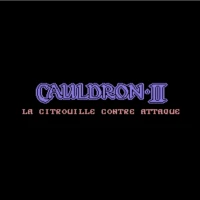
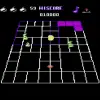
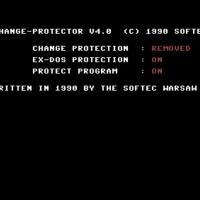

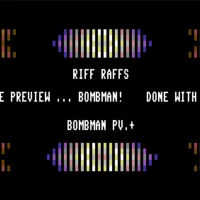

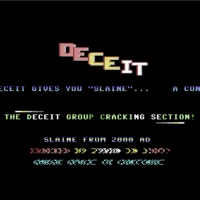
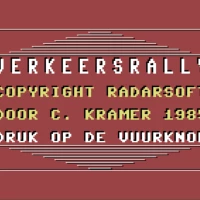
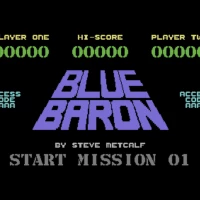
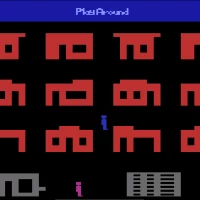


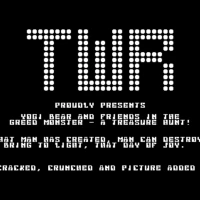
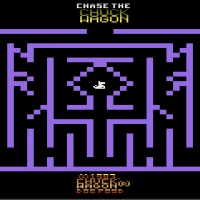

![Gunstar [HOTLINE] Commodore 64 game](https://www.gamesclips.com/gameImages/5496.webp)
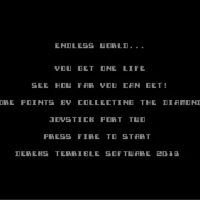

Comments